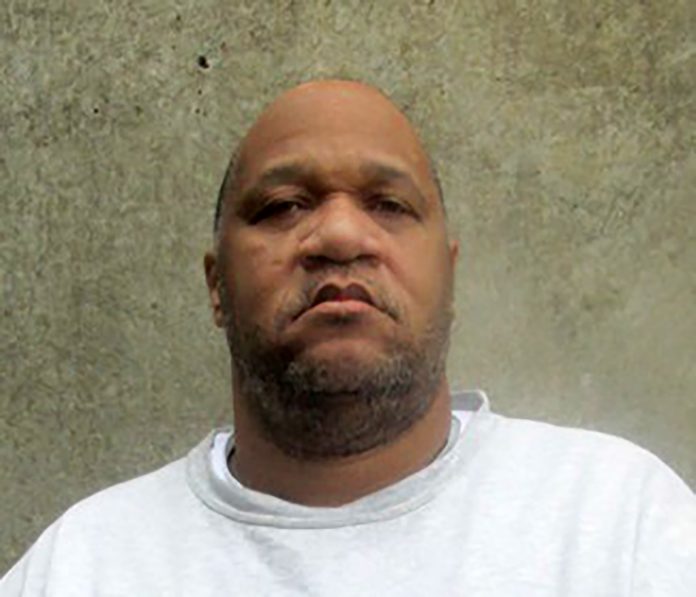Oklahoma executed Emmanuel Littlejohn, 52, on Thursday for his involvement in the 1992 fatal shooting of convenience store owner Kenneth Meers. Governor Kevin Stitt rejected the state parole board’s recommendation to commute Littlejohn’s sentence to life imprisonment without parole.
Littlejohn received a lethal injection at the Oklahoma State Penitentiary and was pronounced dead at 10:17 a.m. Before the execution, he exchanged final words with his mother and daughter, who were present as witnesses. His spiritual advisor, Rev. Jeff Hood, prayed over him in the death chamber.
The execution proceeded without complications, according to Steven Harpe, director of the Oklahoma Department of Corrections. Legal challenges to the state’s lethal injection method were denied by both state and federal courts in the days leading up to the execution.
He denied firing the fatal shot
Littlejohn was convicted of robbing the Root-N-Scoot convenience store in Oklahoma City with co-defendant Glenn Bethany in June 1992, resulting in Meers’ death. While Littlejohn apologized to Meers’ family during his clemency hearing, he denied firing the fatal shot. His attorneys argued that the prosecution’s case against him was inconsistent with that against Bethany, who received a life sentence without parole.
Governor Stitt, citing his stance as a “law and order governor,” declined to overturn the jury’s decision. This marks the third execution in Oklahoma this year and the 14th since the state resumed capital punishment in 2021 after a six-year hiatus.

Littlejohn’s case has raised questions about the application of the death penalty in felony murder cases and the prosecutorial practices of former Oklahoma County District Attorney Bob Macy, known for his aggressive pursuit of capital punishment.
This execution, along with others scheduled this week, brings the total number of U.S. executions to 1,600 since the Supreme Court reinstated the death penalty in 1976. Copy


